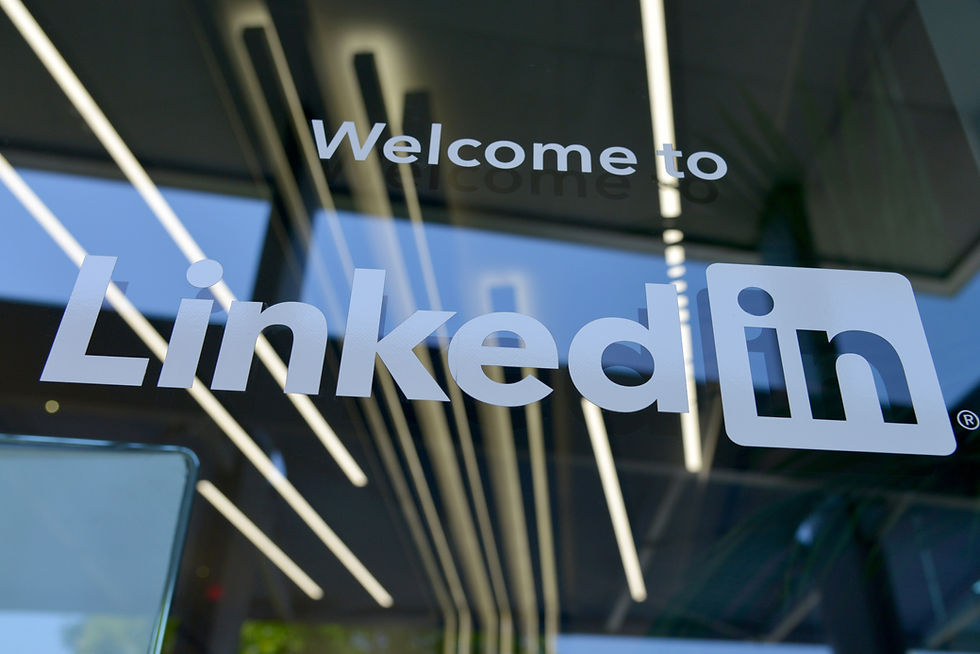You Don't Have to Earn Your Right to Rest: Why Academic Leave Requires Collective Action
- Wendy Nicholls
- Jul 17, 2025
- 7 min read
I spent my first summer holiday as an academic re-reading a textbook for a new module I was teaching in September. Not because anyone asked me to. Not because I was behind on preparation. Because I couldn't shake the feeling that rest was something I had to earn, and I hadn't quite finished everything that needed to be done.
If this sounds familiar, you're not alone. Squeezed somewhere between resits and clearing, there is a vague hope that a summer holiday may be possible. However, academia has trained us to believe that taking proper annual leave is selfish, unrealistic, or something we must deserve through exhaustion. This belief is both false and harmful. You deserve rest because you're human, not because you've suffered enough to justify it. But taking our leave requires another level of both thinking and action.

Permission Granted
You are allowed to want time off. Not "flexible working" where you answer emails from the beach, not "reduced intensity" where you think about work slightly less, but proper time off where work doesn't feature at all. You are allowed to protect that time, to prioritise your wellbeing, and to rest without guilt. Rest isn't earned through suffering, it's a basic human need that keeps you functional, creative, and capable of doing the work you care about.
These statements might feel radical because academic culture has convinced us otherwise. We've been conditioned to believe that our worth depends on our productivity, that dedication requires sacrifice, and that taking time off demonstrates a lack of commitment. These beliefs serve institutions, not individuals.
Why Traditional Advice about Taking Leave Falls Short
Standard workplace advice assumes your job has boundaries. Setting an out-of-office message doesn't help when your PhD student has a crisis. Deleting work apps doesn't silence the internal monologue about that paper deadline. In academia, traditional advice fails because your work lives in your head, you feel responsible for everything, and your identity has become fused with your role.
When work is your calling, switching off feels like abandoning who you are. This is a predictable response to a system that deliberately blurs the boundaries between professional and personal identity. Universities benefit when you can't distinguish between your worth as a human being and your value as an employee.
Realistic Academic Leave
Instead of fighting the system entirely, we can work within its constraints while refusing to accept its most damaging demands. Realistic annual leave for academics requires acknowledging that complete disconnection may be impossible whilst maintaining that partial disconnection is still valuable. What do you want your annual leave to look like? What do you need? We can consider three scenarios:
Your best-case scenario involves setting clear boundaries about genuine emergencies, checking communications once daily at predetermined times, protecting physical spaces from work intrusion, and engaging with ideas that energise rather than drain you. You might still think about work, but you won't act on every thought. You'll return refreshed rather than behind.
Your worst-case scenario involves promising complete disconnection, breaking that promise on day two, then abandoning all boundaries in guilt and frustration. You'll work reactively, responding to every email immediately, using leave to catch up on neglected tasks while feeling guilty about every moment not spent working. You'll return more exhausted than when you left.

The realistic middle ground acknowledges that work thoughts will arise whilst planning how to handle them constructively. You can set specific times for checking communications, choose consciously what deserves your attention, and protect certain times and spaces as completely work-free. This approach focuses on what you can control rather than fighting what you cannot.
Practical Strategies Within Academic Constraints
Building your capacity for time off starts with micro-boundaries. Before attempting two weeks away, practice protecting two hours. Before digital detox, try email-free mornings. These small acts of self-protection build the psychological muscles needed for larger boundaries.
If you're going to think about work anyway, make it intentional. Choose projects that energise you, set clear time limits, and work on your terms rather than responding to everyone else's demands. Key practical steps include:
• Plan your re-entry carefully - Block your first day back from meetings and prepare colleagues that you'll need time to catch up
• Communicate boundaries clearly - "I'm checking emails once per day during leave" manages expectations better than claiming complete unavailability
• Use physical distance strategically - Even working from a different room can help separate holiday thinking from routine obligations
• Protect what matters to you - Whether that's sleeping more, seeing friends, or reading for pleasure, guard these activities even if you cannot eliminate work entirely
• Start with micro-boundaries - Choose one evening this week to be completely work-free and practice sitting with the discomfort
The Collective Dimension
Individual boundary-setting only succeeds within collective cultures that support it. Not everyone has equal privilege to set boundaries unilaterally. Early career researchers, those on precarious contracts, and people on temporary contracts face real career risks when they attempt to protect their time.
Here lies an uncomfortable truth that the current system of academic overwork only functions because we enable it collectively. Every email sent during someone's leave, every crisis escalated unnecessarily, every instance of poor coverage for absent colleagues are the mechanisms that keep a broken system running.
The system depends on academics policing each other's boundaries and normalising excessive availability. When you send that email during someone's leave, you're actively participating in a system that exploits everyone.
This participation isn't necessarily conscious or malicious, but it is consequential. Stopping this enabling requires deliberate action:
• Don't send emails during others' leave - Draft them and schedule for their return, or phone if the matter is truly urgent
• Share responsibility for critical tasks - Set up group emails for course leadership, student crises, or departmental operations so no single person becomes indispensable
• Cover properly when colleagues are away - Actually handle their urgent tasks rather than simply redirecting queries or bothering them on leave
• Normalise saying no - When someone declines extra work citing workload, support them publicly: "Sarah's right to protect her time"
• Question emergency demands - Before interrupting someone's leave, ask whether this would be an emergency if it happened next week
• Model healthy leave-taking yourself - Set clear out-of-office messages, delegate properly, and resist the urge to check in

It could be argued that those academics with the most privilege (full time permanant staff, senior researchers, those with secure contracts) have a particular responsibility to use their position to protect more vulnerable colleagues. This demonstrates a refusal to participate in a system that harms everyone. Collective action creates the safety that individual boundary-setting requires, and it represents the only viable path to changing academic culture from within.
The Reality of Career Consequences
Some academics worry that taking proper leave will harm their career prospects. In some toxic academic environments, it might. If you work somewhere that punishes people for taking their contractual leave, that reveals something important about your institution's values and sustainability.
Research suggests that well-rested academics are more creative, productive, and collaborative, making burnout rather than boundaries the real career killer. However, this assumes you work in a rational environment that values long-term sustainability over short-term exploitation. Your colleagues need to see someone taking proper leave, your students need to see healthy work patterns modelled, and the profession needs people who refuse to accept that exhaustion equals dedication. Yet you cannot fix academia single-handedly, and your career shouldn't be the sacrifice required for institutional change.
The Test of Your Environment
Try these approaches and give collective action a genuine chance. Set boundaries where you can, support colleagues in setting theirs, and refuse to enable the system that exploits everyone. If these strategies work, if you can take proper leave, if your colleagues respect your boundaries, if your department creates sustainable practices, then you've found a way to make academia work for you.
However, if your environment remains toxic despite these efforts, if boundaries are consistently ignored, if collective action fails because too few people have the privilege to participate, then you'll have your answer about whether this system deserves your wellbeing. Some academic environments can be improved through collective action. Others are fundamentally incompatible with human flourishing. The only way to know which you're in is to try.
You deserve rest because you're human. The question is whether your academic environment will allow you to be human, or whether it demands you sacrifice your humanity for institutional goals. The textbook can wait. Your wellbeing cannot. And if your workplace cannot accept that basic truth, perhaps the problem isn't your boundary-setting skills.
If you're struggling to take proper annual leave despite your best efforts, you're not alone, and it's not your fault. The patterns that drive academic overwork run deep, and changing them requires more than individual willpower. If you'd like support in creating sustainable academic practices or figuring out your next steps, I'd be happy to help. Book a call to discuss how we can work together. https://tidycal.com/drwendynicholls/letschat
Hi, I am Wendy. I work with overwhelmed academics to help them escape the endless treadmill of competing demands so that they can reconnect with their identity & purpose.
Packages start from £499.
With me you can expect to achieve:
A comprehensive mapping of where you are now, and where you want to be.
Clarity on what matters to you both professionally and personally.
Practical tools to set work boundaries that actually stick in academic environments.
Strategies to protect your wellbeing while still delivering quality work.
Emotional support and understanding.
Confidence to make decisions to support your future personal and professional life.
Book a chat in my diary, it is free for a 30 minute conversation to find out if working with me can help you take the next steps in your academic life. https://tidycal.com/drwendynicholls/letschat
Thank you for reading my article.





Comments